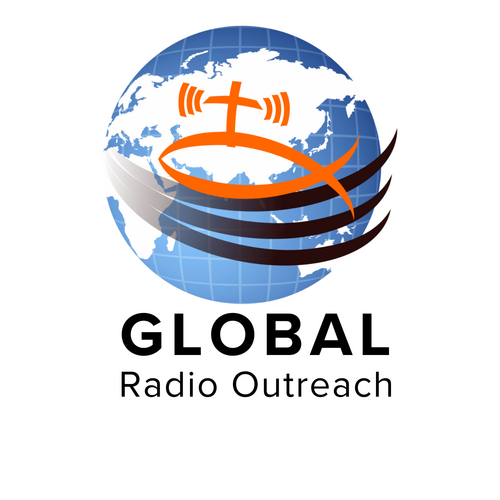People Group Prayer Focus
Hui in China
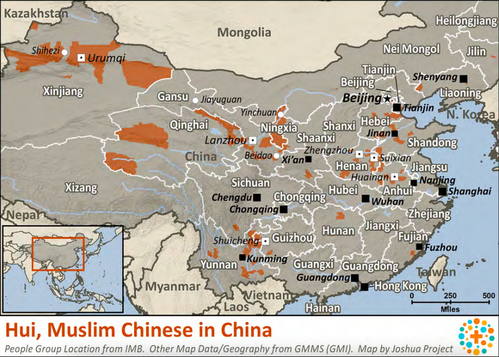
POPULATION: 13,733,000
LANGUAGES: Chinese, Mandarin
RELIGIONS: Islam (99.9%),
The Hui are an official minority of China. Their high cheekbones and round eyes give many Hui a very different appearance from the Han Chinese.
The Hui speak standard Mandarin; although, in some locations, Persian and Arabic words have been added to their vocabulary.
By the middle of the seventh century, Arab and Persian traders and merchants traveled to China in search of riches. In addition, in the thirteenth century the Mongols turned people into mobile armies during their Central Asian conquests and sent them to China. These civilians were expected to settle down at various locations to farm while maintaining combat readiness. As artisans, scholars, officials, and religious leaders, they spread throughout China. These people are the ancestors of today's Hui. One of the worst cases of genocide in history took place against the Hui in Yunnan from 1855 to 1873. One million Hui people were massacred.
LANGUAGES: Chinese, Mandarin
RELIGIONS: Islam (99.9%),
The Hui are an official minority of China. Their high cheekbones and round eyes give many Hui a very different appearance from the Han Chinese.
The Hui speak standard Mandarin; although, in some locations, Persian and Arabic words have been added to their vocabulary.
By the middle of the seventh century, Arab and Persian traders and merchants traveled to China in search of riches. In addition, in the thirteenth century the Mongols turned people into mobile armies during their Central Asian conquests and sent them to China. These civilians were expected to settle down at various locations to farm while maintaining combat readiness. As artisans, scholars, officials, and religious leaders, they spread throughout China. These people are the ancestors of today's Hui. One of the worst cases of genocide in history took place against the Hui in Yunnan from 1855 to 1873. One million Hui people were massacred.
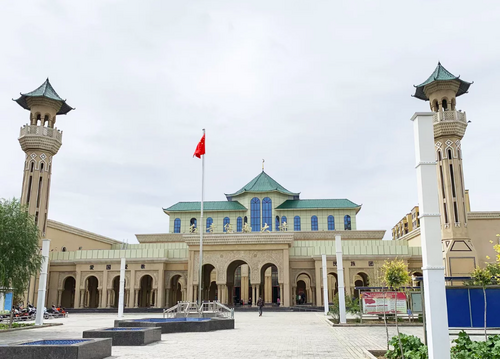
What Are Their Lives Like?
The Hui are forbidden to eat pork, but that prohibition is often overlooked by calling the meat "mutton." Most Hui are hardworking businessmen and are well thought of. A Chinese joke is that "One Muslim traveling will grow fat; two on a journey will grow thin." The Hui are renowned as sharp businessmen. A Chinese proverb from the 1800s states, "A Chinese awake is not the equal of a Hui sleeping."
The Hui are forbidden to eat pork, but that prohibition is often overlooked by calling the meat "mutton." Most Hui are hardworking businessmen and are well thought of. A Chinese joke is that "One Muslim traveling will grow fat; two on a journey will grow thin." The Hui are renowned as sharp businessmen. A Chinese proverb from the 1800s states, "A Chinese awake is not the equal of a Hui sleeping."
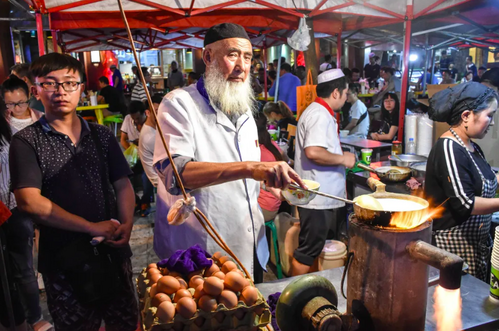
What Are Their Beliefs?
Almost all Hui are Sunni Muslims. They worship in thousands of mosques throughout China. Islam first came to China via Abu Waggas, one of Mohammed's contemporaries. He preached in southern China and had the Beacon Tower built in memory of Mohammed in AD 627. In recent years, an increasing number of Hui have traveled to Mecca for the annual Haj pilgrimage.
Almost all Hui are Sunni Muslims. They worship in thousands of mosques throughout China. Islam first came to China via Abu Waggas, one of Mohammed's contemporaries. He preached in southern China and had the Beacon Tower built in memory of Mohammed in AD 627. In recent years, an increasing number of Hui have traveled to Mecca for the annual Haj pilgrimage.
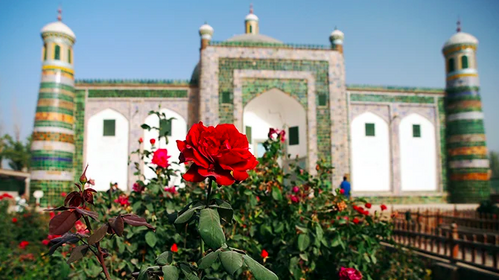
What Are Their Needs?
Mission work among the Hui in Ningxia commenced in 1885. A few Hui converts were numbered among the Hui in Manchuria, Gansu, and Qinghai by the 1920s. In 1934 an American missionary known as Hai Chun Sheng baptized several Hui Muslim leaders in Qinghai. Recently a mission team secretly distributed 35,000 gospel tracts and cassette tapes to the Hui. A large church has emerged in northern Ningxia, but almost all the believers are Han Chinese, and few of them have a desire to reach out to the Hui. Most Hui have yet to hear the gospel of Christ, but there are now a few thriving churches among the Hui
Mission work among the Hui in Ningxia commenced in 1885. A few Hui converts were numbered among the Hui in Manchuria, Gansu, and Qinghai by the 1920s. In 1934 an American missionary known as Hai Chun Sheng baptized several Hui Muslim leaders in Qinghai. Recently a mission team secretly distributed 35,000 gospel tracts and cassette tapes to the Hui. A large church has emerged in northern Ningxia, but almost all the believers are Han Chinese, and few of them have a desire to reach out to the Hui. Most Hui have yet to hear the gospel of Christ, but there are now a few thriving churches among the Hui
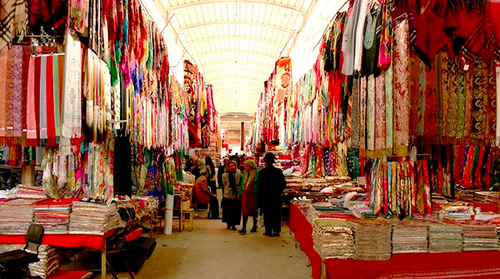
Prayer Points
- Pray for the Lord to give the Hui in China such spiritual hunger that they will seek, find and proclaim Christ no matter what the cost.
- Pray for Chinese believers to lovingly take Christ to the Hui.
- Pray for Hui disciples to make more disciples.
- Pray that those who know Arabic or Persian would be lead by the Holy Spirit to GRO's website so they can hear the Gospel
- Pray that GRO would be able to raise us a website missionary to host a Mandarin website and radio station
- Pray for the Lord to give the Hui in China such spiritual hunger that they will seek, find and proclaim Christ no matter what the cost.
- Pray for Chinese believers to lovingly take Christ to the Hui.
- Pray for Hui disciples to make more disciples.
- Pray that those who know Arabic or Persian would be lead by the Holy Spirit to GRO's website so they can hear the Gospel
- Pray that GRO would be able to raise us a website missionary to host a Mandarin website and radio station
Ansari in India
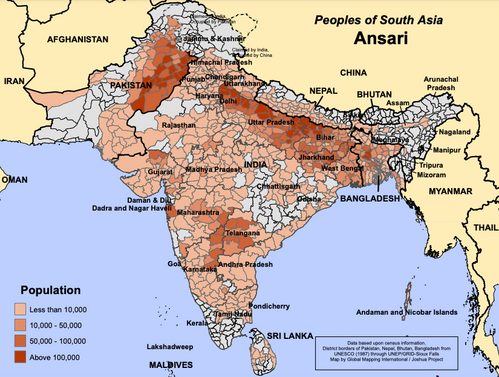
POPULATION: 12,058,000
LANGUAGES: Urdu
RELIGIONS: Islam (100%),
The Ansari people are noted for their friendliness and their helpfulness. They are predominately artisans by trade and are mostly poor and illiterate. The weaving of silk is a common trade skill of these people. Although traditionally weavers and textile sellers, the Ansaris are now involved in a wide range of small business enterprises.
The name Ansari (“helpers”) was given to the residents of Medina who helped the prophet Mohammed. After waves of migrations from the Middle East, the name was adopted by people groups becoming Muslims on the Indian subcontinent. Currently, there are about 10 million Ansaris living in small towns and villages across northern India. The Varanasi District in Uttar Pradesh is considered the center of their community, and the Ansari are said to make up a third of the city's population.
LANGUAGES: Urdu
RELIGIONS: Islam (100%),
The Ansari people are noted for their friendliness and their helpfulness. They are predominately artisans by trade and are mostly poor and illiterate. The weaving of silk is a common trade skill of these people. Although traditionally weavers and textile sellers, the Ansaris are now involved in a wide range of small business enterprises.
The name Ansari (“helpers”) was given to the residents of Medina who helped the prophet Mohammed. After waves of migrations from the Middle East, the name was adopted by people groups becoming Muslims on the Indian subcontinent. Currently, there are about 10 million Ansaris living in small towns and villages across northern India. The Varanasi District in Uttar Pradesh is considered the center of their community, and the Ansari are said to make up a third of the city's population.

What Are Their Lives Like?
They have traditionally been weavers and textile sellers, but are now involved in a wide range of small businesses, agriculture and even politics,. The Ansari are considered to be a lower caste than other Indians and may even face persecution or are often told to "Go to Pakistan". Some Ansari living in villages and rural areas remain poor, illiterate, and do not access to clean water and electricity, though many Ansari now live in cities.
They have traditionally been weavers and textile sellers, but are now involved in a wide range of small businesses, agriculture and even politics,. The Ansari are considered to be a lower caste than other Indians and may even face persecution or are often told to "Go to Pakistan". Some Ansari living in villages and rural areas remain poor, illiterate, and do not access to clean water and electricity, though many Ansari now live in cities.
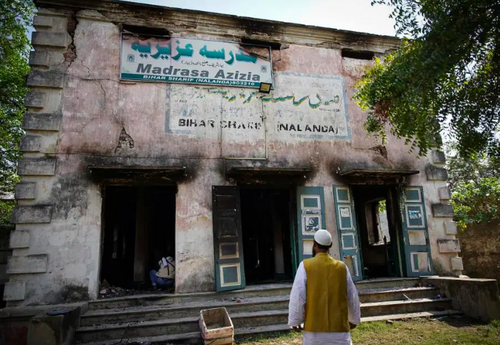
What Are Their Beliefs?
The Ansari people are Sunni Muslims who believe that the supreme God, Allah, spoke through his prophet, Mohammed, and taught mankind how to live a righteous life through the Koran and the Hadith. To live a righteous life, you must utter the Shahada (a statement of faith), pray five times a day facing Mecca, fast from sunup to sundown during the month of Ramadan, give alms to the poor, and make a pilgrimage to Mecca if you have the means. Muslims are prohibited from drinking alcohol, eating pork, gambling, stealing, slandering, and making idols. They gather for corporate prayer on Friday afternoons at a mosque, their place of worship.
Like most of the Muslim world, the Ansari people depend on the spirit world for their daily needs since they regard Allah as too distant. Allah may determine their eternal salvation, but the spirits determine how well we live in our daily lives. For that reason, they must appease the spirits. They often use charms and amulets to help them with spiritual forces.
The Ansari people are Sunni Muslims who believe that the supreme God, Allah, spoke through his prophet, Mohammed, and taught mankind how to live a righteous life through the Koran and the Hadith. To live a righteous life, you must utter the Shahada (a statement of faith), pray five times a day facing Mecca, fast from sunup to sundown during the month of Ramadan, give alms to the poor, and make a pilgrimage to Mecca if you have the means. Muslims are prohibited from drinking alcohol, eating pork, gambling, stealing, slandering, and making idols. They gather for corporate prayer on Friday afternoons at a mosque, their place of worship.
Like most of the Muslim world, the Ansari people depend on the spirit world for their daily needs since they regard Allah as too distant. Allah may determine their eternal salvation, but the spirits determine how well we live in our daily lives. For that reason, they must appease the spirits. They often use charms and amulets to help them with spiritual forces.
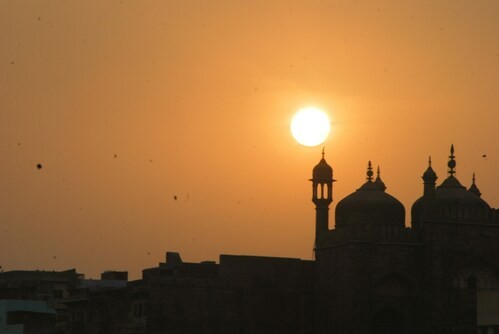
What are their needs?
The Ansari could benefit from help in educating their children, learning new jobs skills, and obtaining access to clean water and electricity Since they are friendly and hospitable, believers can develop friendships and find opportunities to share the Good News. In recent years, teams of believers have begun work in north India among the Ansari and some families have come to know Jesus! Those living in cities also have also have access to the internet and those sharing the through various platforms.
The Ansari could benefit from help in educating their children, learning new jobs skills, and obtaining access to clean water and electricity Since they are friendly and hospitable, believers can develop friendships and find opportunities to share the Good News. In recent years, teams of believers have begun work in north India among the Ansari and some families have come to know Jesus! Those living in cities also have also have access to the internet and those sharing the through various platforms.
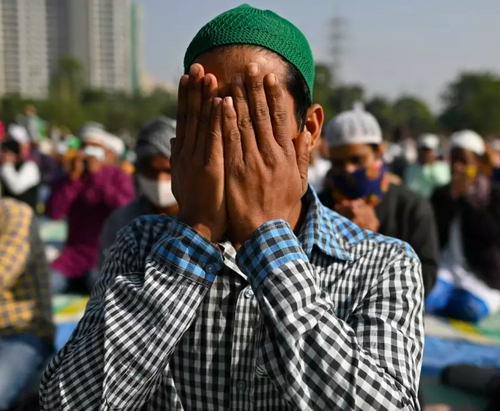
Prayer Points
- Pray for the Holy Spirit to give Ansari people a hunger for righteousness and holiness that will turn their hearts to Jesus.
- Pray for the Lord to find a way to get His children into Ansari communities so that they can enjoy the blessings of the Savior.
- Pray that the Holy Spirit will lead those Ansari who have access to the internet to GRO's Urdu website so they can be impacted by the Gospel of Jesus.
- Pray for the Holy Spirit to give Ansari people a hunger for righteousness and holiness that will turn their hearts to Jesus.
- Pray for the Lord to find a way to get His children into Ansari communities so that they can enjoy the blessings of the Savior.
- Pray that the Holy Spirit will lead those Ansari who have access to the internet to GRO's Urdu website so they can be impacted by the Gospel of Jesus.
Pashtun in Pakistan
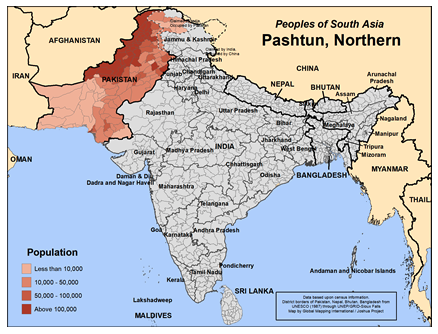
POPULATION: 32,704,00
LANGUAGES: Pashton, Urdu
RELIGIONS: Islam (100%),
The Pashtun of Pakistan have been called the largest Muslim tribal society in the world. There are at least 30 major tribes, and countless sub-tribes and clans. Spread over a vast geographical area and riven by socio-economic, political, tribal and linguistic (dialectical) differences, Pashtuns nevertheless share a unique sense of common identity. Pashtun identity is based on four elements: Heritage (descent from a common ancestor); Islam (99.9% Muslim); the Pashtunwali Code of Honor ("The Way of the Pashtun"); and to some extent, Language (Pakhtu or Pashto). They live primarily in Afghanistan and Pakistan, though a majority live in Pakistan.
There have been efforts to reach the Pashtun since 1818, when William Carey translated parts of the Old Testament into Pakhto, based on interaction with Pashtun traders who caravanned (and settled) across north India and beyond. This was followed by over 150 years of faithful witness, through mission hospitals, schools, colleges, literature, friendship evangelism, and other forms of witness by national Pakistani (Punjabi) Christians and expatriate missionaries. Despite this record, and the slow but growing number of scattered Pashtun believers, a vibrant, indigenous, disciple-making movement has yet to take root and spread.
LANGUAGES: Pashton, Urdu
RELIGIONS: Islam (100%),
The Pashtun of Pakistan have been called the largest Muslim tribal society in the world. There are at least 30 major tribes, and countless sub-tribes and clans. Spread over a vast geographical area and riven by socio-economic, political, tribal and linguistic (dialectical) differences, Pashtuns nevertheless share a unique sense of common identity. Pashtun identity is based on four elements: Heritage (descent from a common ancestor); Islam (99.9% Muslim); the Pashtunwali Code of Honor ("The Way of the Pashtun"); and to some extent, Language (Pakhtu or Pashto). They live primarily in Afghanistan and Pakistan, though a majority live in Pakistan.
There have been efforts to reach the Pashtun since 1818, when William Carey translated parts of the Old Testament into Pakhto, based on interaction with Pashtun traders who caravanned (and settled) across north India and beyond. This was followed by over 150 years of faithful witness, through mission hospitals, schools, colleges, literature, friendship evangelism, and other forms of witness by national Pakistani (Punjabi) Christians and expatriate missionaries. Despite this record, and the slow but growing number of scattered Pashtun believers, a vibrant, indigenous, disciple-making movement has yet to take root and spread.
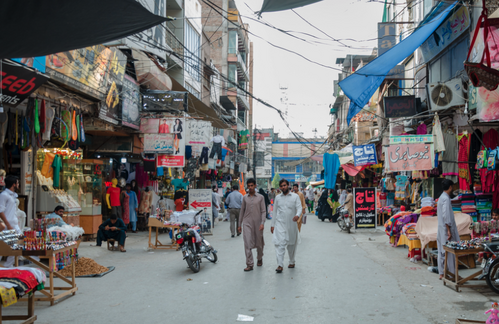
Their History
The Pashtun of Pakistan are part of once was the largest people group among Afghanistan's peoples. The Pashtun were the traditional rulers of Afghanistan for over 250 years. Since the overthrow of the Afghan king, communist coup and Soviet invasion in the 1970s, Afghanistan has been in a state of constant conflict. In the 1970's and 1980 's, the Pakistan-Afghanistan borderlands were the launchpad for mujahideen ("freedom fighters") who, with Western, Saudi, and global support, resisted and overthrew the communist regime. The cost was high: Over 3.5 million refugees settled into hundreds of refugee camps in border provinces of Iran and Pakistan; one-third of the population was displaced. During the 1990s, Pashtun tribal areas and thousands of Arab-funded madrassas (religious schools) throughout Pakistan, became the seedbed for the rise of the Taliban movement. Driven by a combination of religious zeal and Pashtun nationalism, and fueled by Arab money, the "Taliban" (a term for "religious students") imposed a harsh, hyper-conservative (Wahabi) version of Islam on the country. Unfortunately, attempts toward a peace accord and durable central government have, to date, been unsuccessful. Armed opposition continues. Instability, endemic corruption, and on-going violence have led to widespread disillusionment—and the migration of tens of thousands of Afghans (mainly young men) seeking jobs and opportunity in Europe and the West.
The Pashtun of Pakistan are part of once was the largest people group among Afghanistan's peoples. The Pashtun were the traditional rulers of Afghanistan for over 250 years. Since the overthrow of the Afghan king, communist coup and Soviet invasion in the 1970s, Afghanistan has been in a state of constant conflict. In the 1970's and 1980 's, the Pakistan-Afghanistan borderlands were the launchpad for mujahideen ("freedom fighters") who, with Western, Saudi, and global support, resisted and overthrew the communist regime. The cost was high: Over 3.5 million refugees settled into hundreds of refugee camps in border provinces of Iran and Pakistan; one-third of the population was displaced. During the 1990s, Pashtun tribal areas and thousands of Arab-funded madrassas (religious schools) throughout Pakistan, became the seedbed for the rise of the Taliban movement. Driven by a combination of religious zeal and Pashtun nationalism, and fueled by Arab money, the "Taliban" (a term for "religious students") imposed a harsh, hyper-conservative (Wahabi) version of Islam on the country. Unfortunately, attempts toward a peace accord and durable central government have, to date, been unsuccessful. Armed opposition continues. Instability, endemic corruption, and on-going violence have led to widespread disillusionment—and the migration of tens of thousands of Afghans (mainly young men) seeking jobs and opportunity in Europe and the West.
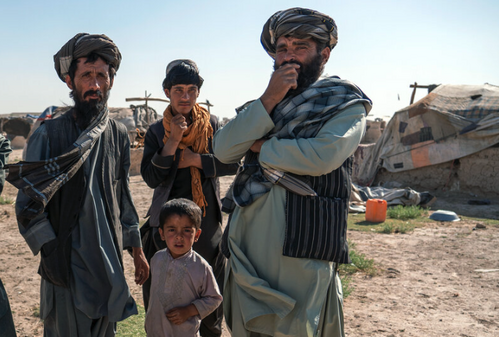
What are their lives like?
Pashtun belong to different clans and families with varying relationships to each other and differing social statuses. Pashtun migrated to different places during the 18th century due to their increasing population and lack of food, water, and grazing land for their animals. Many Pashtun of Afghanistan are not big landowners but make a living in agricultural fields despite having low incomes. Many groups of Pashtun along the border between Afghanistan and Pakistan live nomadic lifestyles.
Pashtun belong to different clans and families with varying relationships to each other and differing social statuses. Pashtun migrated to different places during the 18th century due to their increasing population and lack of food, water, and grazing land for their animals. Many Pashtun of Afghanistan are not big landowners but make a living in agricultural fields despite having low incomes. Many groups of Pashtun along the border between Afghanistan and Pakistan live nomadic lifestyles.
What do they believe?
With the arrival of Islam in the 7th century, the Pashtun region experienced a gradual transformation of its religious landscape. Conversion to Islam was not uniform, and various Pashtun tribes embraced the new religion at different times. As Islam spread, it blended with local cultural elements. And Islam became an integral part of the Pashtun culture
With the arrival of Islam in the 7th century, the Pashtun region experienced a gradual transformation of its religious landscape. Conversion to Islam was not uniform, and various Pashtun tribes embraced the new religion at different times. As Islam spread, it blended with local cultural elements. And Islam became an integral part of the Pashtun culture
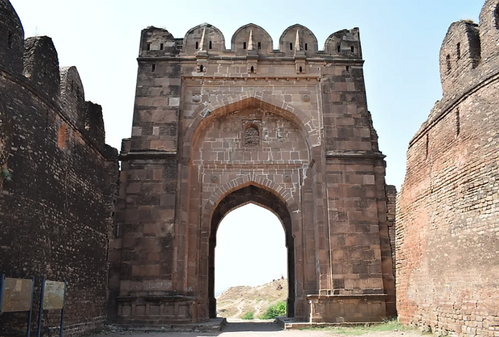
What are their needs?
It is very difficult to get people into the Pashtun homeland to present the gospel and disciple new believers, so they need other means of being reached such as radio or websites. They also need to Bible to be completed in their language.
It is very difficult to get people into the Pashtun homeland to present the gospel and disciple new believers, so they need other means of being reached such as radio or websites. They also need to Bible to be completed in their language.
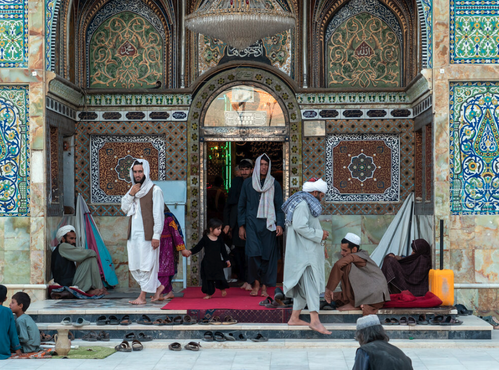
Prayer Points
Media. Pray for the production and distribution of all forms of media in the Pashto land Urdu languages, including literature, videos, music, movies, radio, websites, and social media. Pray that they are led by the Holy Spirit to GRO's Urdu outreach website and come to a saving knowledge of Jesus.
Scripture. Pray for Bible translations in progress!
Laborers. Pray for more workers to serve among the Pashtun people—in education, business, healthcare, development, and other professional areas.
Believers. No one knows how many Pashtuns are following Jesus. Seeds of the Gospel have been sown widely. The greatest barriers to faith are social and cultural. Pray for God's Spirit to strengthen and protect new believers and to empower their lives and witness.
Media. Pray for the production and distribution of all forms of media in the Pashto land Urdu languages, including literature, videos, music, movies, radio, websites, and social media. Pray that they are led by the Holy Spirit to GRO's Urdu outreach website and come to a saving knowledge of Jesus.
Scripture. Pray for Bible translations in progress!
Laborers. Pray for more workers to serve among the Pashtun people—in education, business, healthcare, development, and other professional areas.
Believers. No one knows how many Pashtuns are following Jesus. Seeds of the Gospel have been sown widely. The greatest barriers to faith are social and cultural. Pray for God's Spirit to strengthen and protect new believers and to empower their lives and witness.
Bengali Muslims
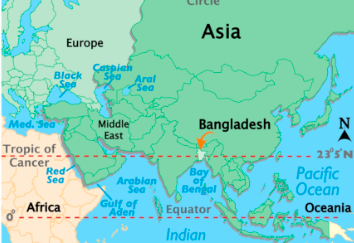
POPULATION: 135,600,00
LANGUAGE: Bengali
RELIGIONS: Islam (99.4%), Christian (.06%)
Islam arrived in what is now Bangladesh in the early 1200s with a military attack by Muhammad Bakhtiyar Khilji. It was an early foothold of Islam in a region dominated by the local religions collectively known as Hinduism. For hundreds of years, Muslim conquerors fought for more of Bengal, all the while facing resistance by Hindu kings. As time progressed the two Bengali religious communities were divided not only by religion but by economics. Bengali Muslims gravitated to being landless laborers while the Hindus became landlords and urban specialists. Hindu speaking Bengalis live mainly in India’s adjacent state of West Bengal. There are also millions of Muslim Bengali speakers outside of Bangladesh, mainly in West Bengal. Bengalis are the largest Muslim people group in the world.
LANGUAGE: Bengali
RELIGIONS: Islam (99.4%), Christian (.06%)
Islam arrived in what is now Bangladesh in the early 1200s with a military attack by Muhammad Bakhtiyar Khilji. It was an early foothold of Islam in a region dominated by the local religions collectively known as Hinduism. For hundreds of years, Muslim conquerors fought for more of Bengal, all the while facing resistance by Hindu kings. As time progressed the two Bengali religious communities were divided not only by religion but by economics. Bengali Muslims gravitated to being landless laborers while the Hindus became landlords and urban specialists. Hindu speaking Bengalis live mainly in India’s adjacent state of West Bengal. There are also millions of Muslim Bengali speakers outside of Bangladesh, mainly in West Bengal. Bengalis are the largest Muslim people group in the world.

What Are Their Lives Like?
Bangladesh is noted for economic problems, but they have grown considerably in the 2020s. With well over 100 million Bengali Muslims in Bangladesh alone, they hold any possible profession.
Yet Bengalis face an ongoing identity crisis. They are divided across religious lines, with centuries of fighting between themselves and the Hindus.
Bangladesh is noted for economic problems, but they have grown considerably in the 2020s. With well over 100 million Bengali Muslims in Bangladesh alone, they hold any possible profession.
Yet Bengalis face an ongoing identity crisis. They are divided across religious lines, with centuries of fighting between themselves and the Hindus.
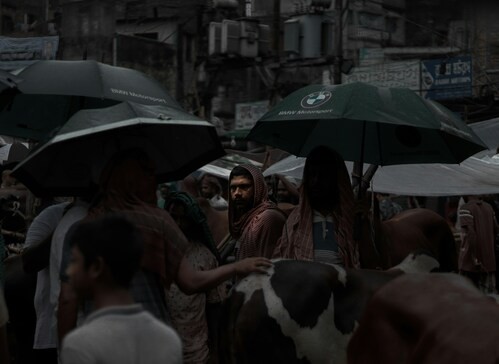
What Are Their Beliefs?
Though they are officially Sunni Muslim, Bengalis have an affinity for saints known as pirs. They believe these saints hold much spiritual power that can help one gain wealth and heal health problems. Bengali Muslims also commonly embrace Sufism. This is a mystical and emotional Islamic practice which seeks to reach a state of spiritual purity known as fitra. Sufis form themselves into orders led by spiritual teachers.
Though they are officially Sunni Muslim, Bengalis have an affinity for saints known as pirs. They believe these saints hold much spiritual power that can help one gain wealth and heal health problems. Bengali Muslims also commonly embrace Sufism. This is a mystical and emotional Islamic practice which seeks to reach a state of spiritual purity known as fitra. Sufis form themselves into orders led by spiritual teachers.
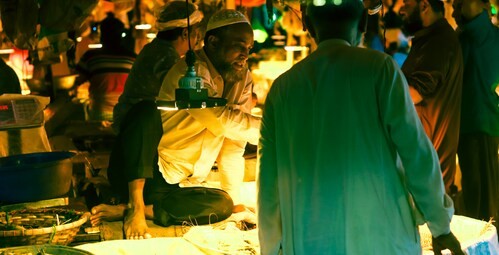
What Are Their Needs?
There is a massive harvest in the making, and Christian Bengalis are in the midst of reaching Muslims for Christ! The best things outsiders can do help ministries like GRO that are broadening the Bengali Christian's reach and equipping them with tools to disciple new believers.
There is a massive harvest in the making, and Christian Bengalis are in the midst of reaching Muslims for Christ! The best things outsiders can do help ministries like GRO that are broadening the Bengali Christian's reach and equipping them with tools to disciple new believers.
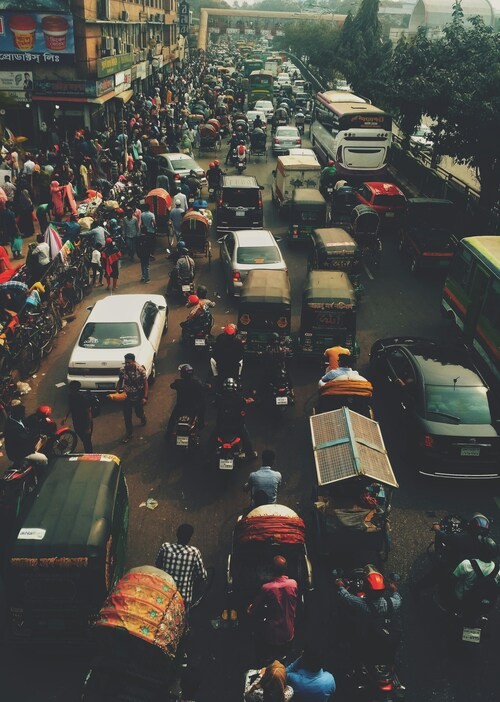
Prayer Points
Pray for the Lord of the Harvest to continue leading thousands of Bengali Muslims to the Savior of all nations.
Pray that this largest Muslim group will find the truth of the Jesus.
Pray for Muslim background Bengali disciples to make more disciples.
Pray that Bengali Muslims that are seeking truth would be led to GRO's outreach websites and be impacted by the message of the Gospel.
Pray for the Lord of the Harvest to continue leading thousands of Bengali Muslims to the Savior of all nations.
Pray that this largest Muslim group will find the truth of the Jesus.
Pray for Muslim background Bengali disciples to make more disciples.
Pray that Bengali Muslims that are seeking truth would be led to GRO's outreach websites and be impacted by the message of the Gospel.
Kulobi in Tajikistan
POPULATION: 882,000
LANGUAGE: Tajik, Russian
RELIGIONS: Islam (100%)
The Kulobi are a sub-group of the Tajik people of Tajikistan in Central Asia. Following the fall of the Soviet Union in 1990, there was a seven-year civil war in Tajikistan. Thousands of people were killed. The economy of the nation is still in recovery and refugees are returning from the surrounding countries. Tajikistan is the poorest nation in Central Asia and there are no known believers among the Kulobi.
LANGUAGE: Tajik, Russian
RELIGIONS: Islam (100%)
The Kulobi are a sub-group of the Tajik people of Tajikistan in Central Asia. Following the fall of the Soviet Union in 1990, there was a seven-year civil war in Tajikistan. Thousands of people were killed. The economy of the nation is still in recovery and refugees are returning from the surrounding countries. Tajikistan is the poorest nation in Central Asia and there are no known believers among the Kulobi.
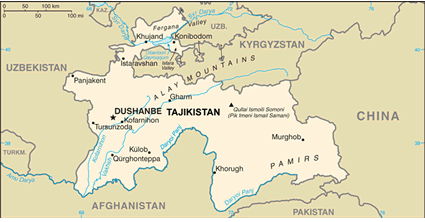
What Are Their Lives Like?
The traditional occupation of the Kulobi was animal husbandry and agriculture. They raised goat, sheep, cattle and camels in a semi-nomadic lifestyle. In the short summers, they grew barley, wheat, fruit, and vegetables. Even today many Kuboli live in cities in the winter and return to the countryside in the summer to grow their crops for the year.
What Are Their Beliefs?
The Kulobi like other Tajiks are Sunni Muslim, the largest denomination in Islam. Many Kulobi also practice elements of folk religion. They believe that spirits inhabit the objects of nature. These spirits must be appeased or they can bring disaster upon the people.
The traditional occupation of the Kulobi was animal husbandry and agriculture. They raised goat, sheep, cattle and camels in a semi-nomadic lifestyle. In the short summers, they grew barley, wheat, fruit, and vegetables. Even today many Kuboli live in cities in the winter and return to the countryside in the summer to grow their crops for the year.
What Are Their Beliefs?
The Kulobi like other Tajiks are Sunni Muslim, the largest denomination in Islam. Many Kulobi also practice elements of folk religion. They believe that spirits inhabit the objects of nature. These spirits must be appeased or they can bring disaster upon the people.
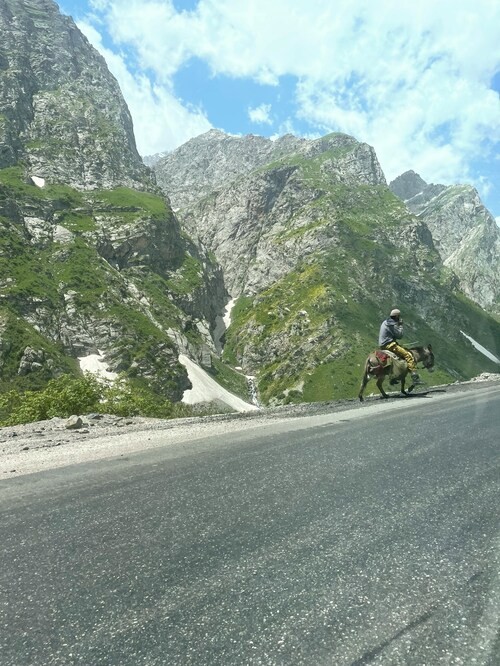
What Are Their Needs?
The Kulobi need to see that only Jesus Christ can forgive their sins and grant them eternal life The Kulobi are a proud people and pride can often prevent people from coming to Christ. Rural Kulobi would benefit by access to modern medicine and ways to improve their farming techniques and the health of their animals.
The Kulobi need to see that only Jesus Christ can forgive their sins and grant them eternal life The Kulobi are a proud people and pride can often prevent people from coming to Christ. Rural Kulobi would benefit by access to modern medicine and ways to improve their farming techniques and the health of their animals.
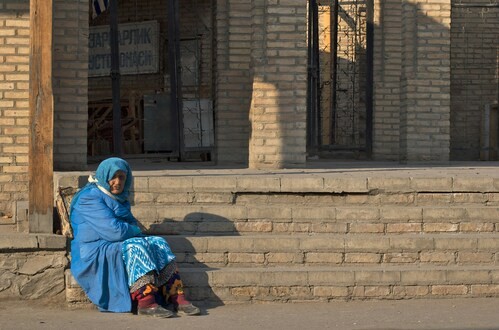
Prayer Points:
Ask God to raise up long-term missionaries who will go to Tajikistan and share Christ with Kulobi.
Pray that the Holy Spirit will give vision for outreach and a genuine burden for the Kulobi to believers who live in this region.
Ask God to raise up a disciple making movement among the Kulobi in this decade.
Pray that the Kulobi people find GRO's Russian outreach website and are compelled to follow Jesus.
Ask God to raise up long-term missionaries who will go to Tajikistan and share Christ with Kulobi.
Pray that the Holy Spirit will give vision for outreach and a genuine burden for the Kulobi to believers who live in this region.
Ask God to raise up a disciple making movement among the Kulobi in this decade.
Pray that the Kulobi people find GRO's Russian outreach website and are compelled to follow Jesus.
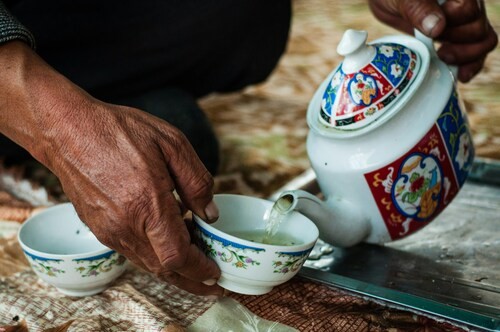
All Muslims
March and April are the months Ramadan falls in this year. Ramadan is a time when Muslims fast and abstain from pleasures during the day light hours. Many during this time are seeking a spiritual fulfillment that can only be found in Christ. Below is a short list of ways you can be praying for Muslims during Ramadan.
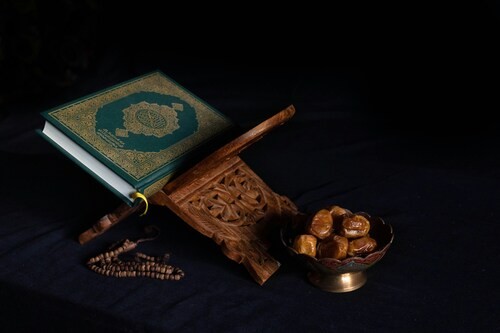
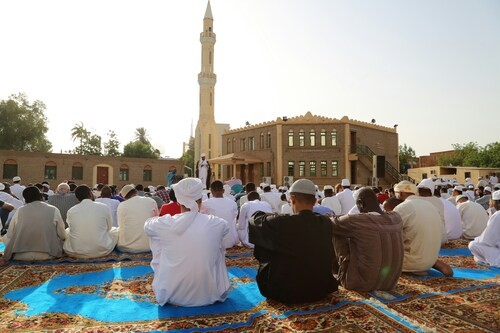
Ways to Pray
- Pray for that Christ will be revealed as Lord and Savior through dreams, visions, and His people.
- Pray for new Muslim-background believers as they respond with boldness to questions and scrutiny for not participating in Ramadan festivities.
- Pray that as Muslims are in a state of seeking they would be led by the Holy Spirit to our Outreach Websites and encounter the Gospel of Jesus Christ.
Tunisian Arabs
POPULATION: 10,917,000
LANGUAGE: Arabic, Tunisian Spoken
RELIGIONS: Islam (99%), Christian (.>1%)
In the first few centuries after Christ, Christianity spread throughout North Africa. A strong church was established in present-day Tunisia despite intense persecution from the Romans. Ancient baptisteries and sites of martyrdom can be found among the ruins. However, disunity, factions, and a failure to translate the Bible into the local languages weakened the church. When Arab invaders arrived in the 7th century an empty shell of a church was all that existed. Islam spread rapidly and the Christian roots of the people were forgotten.
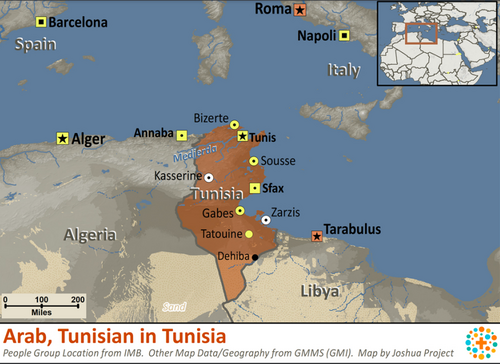
What Are Their Lives Like?
Agriculture, phosphate mining, and tourism dominate Tunisia's economy. What was once known as Rome's "bread basket" still produces delicious fruits, vegetables, and grains. Most farmers employ primitive farming methods. At the same time cell phones, Internet, and Facebook are changing the way Tunisians interact with and view the world.
What Are Their Beliefs?
Virtually all Tunisian Arabs are Muslim. While many are nominal Muslims, Islam heavily influences every aspect of Tunisian culture. They believe in jinn, spirits according to Muslim legend, capable of exercising influence over people. Witchcraft and worship at shrines are practiced and produce bondage and strong spiritual darkness.
What Are Their Needs?
In recent years, Christian media (websites, TV, and radio programs) has generated a great interest in Christianity. Following the recent revolution, unprecedented access to the Gospel has produced a great need for more workers (nationals and foreigners alike) to meet with those who are seeking to know more about Jesus.
Agriculture, phosphate mining, and tourism dominate Tunisia's economy. What was once known as Rome's "bread basket" still produces delicious fruits, vegetables, and grains. Most farmers employ primitive farming methods. At the same time cell phones, Internet, and Facebook are changing the way Tunisians interact with and view the world.
What Are Their Beliefs?
Virtually all Tunisian Arabs are Muslim. While many are nominal Muslims, Islam heavily influences every aspect of Tunisian culture. They believe in jinn, spirits according to Muslim legend, capable of exercising influence over people. Witchcraft and worship at shrines are practiced and produce bondage and strong spiritual darkness.
What Are Their Needs?
In recent years, Christian media (websites, TV, and radio programs) has generated a great interest in Christianity. Following the recent revolution, unprecedented access to the Gospel has produced a great need for more workers (nationals and foreigners alike) to meet with those who are seeking to know more about Jesus.
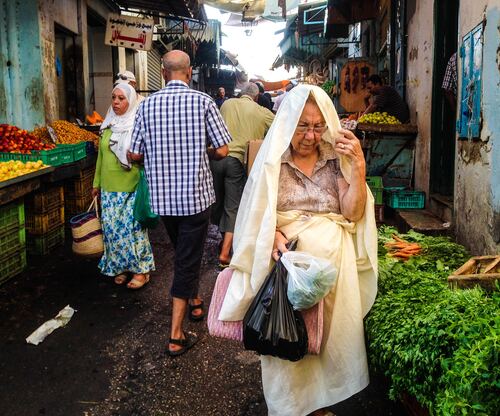
Prayer Points
Ask God to strengthen, encourage, and protect the small number of Tunisian Arab believers.
Pray for completion of Bible translation in this people group's primary language.
Pray for Tunisian Arabs to become aware of their spiritual bankruptcy before God.
Pray for dreams and visions that will open Arab eyes and show them that Jesus is the only way to God.
Pray that God would guide them to websites that will make the Gospel clear to them.
Also pray that God will use the work of Global Radio Outreach to reach this unreached people group.
Ask God to strengthen, encourage, and protect the small number of Tunisian Arab believers.
Pray for completion of Bible translation in this people group's primary language.
Pray for Tunisian Arabs to become aware of their spiritual bankruptcy before God.
Pray for dreams and visions that will open Arab eyes and show them that Jesus is the only way to God.
Pray that God would guide them to websites that will make the Gospel clear to them.
Also pray that God will use the work of Global Radio Outreach to reach this unreached people group.
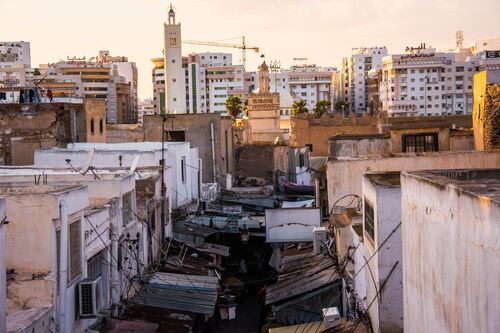
The map and information in these prayer focuses are courtesy of The Joshua Project
